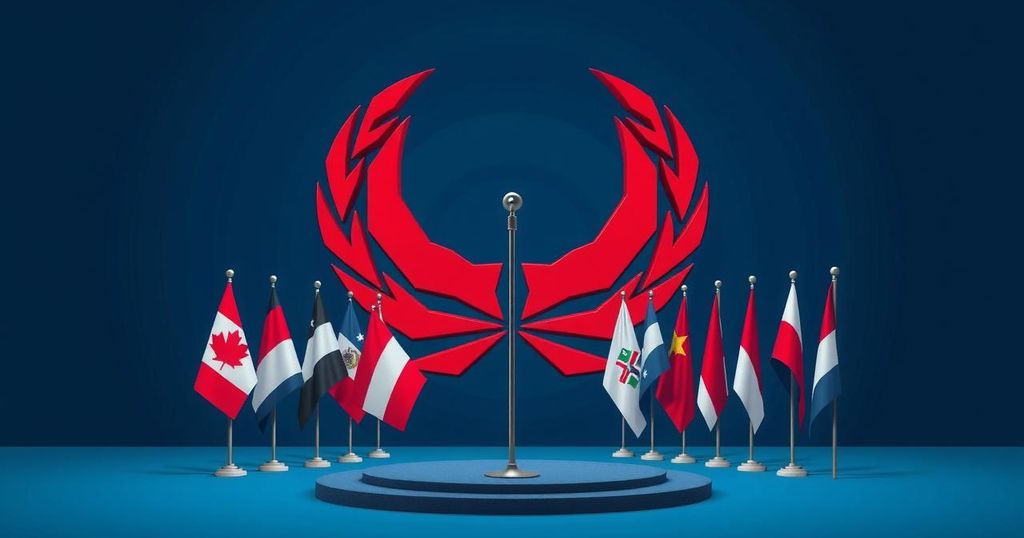Secretary of State Marco Rubio declared Ebrahim Rasool, South Africa’s ambassador to the U.S., “persona non grata” due to his remarks against President Trump. This action follows Trump’s executive order cutting aid to South Africa regarding land expropriation issues. The expulsion of an ambassador is unusual in U.S. foreign policy, highlighting rising diplomatic tensions.
On Friday, Secretary of State Marco Rubio stated that South Africa’s ambassador to the United States, Ebrahim Rasool, is “no longer welcome” in the country, marking a significant move by the Trump administration against South Africa. Rubio labeled Rasool a “race-baiting politician” who opposes Donald Trump, designating him as “persona non grata” after Rasool’s remarks about Trump ally Elon Musk’s affiliations with far-right groups during a recent webinar.
Although the State Department did not provide further details regarding Rasool’s ban, it remains uncertain if he was present in the U.S. when the announcement was made. Rubio shared the news while en route back to Washington from a G7 foreign ministers meeting, noting that expelling a foreign ambassador is a rare occurrence in U.S. diplomacy, typically reserved for lower-ranking diplomats.
Historically, neither the U.S. nor Russia expelled ambassadors during pivotal diplomatic crises, such as the Cold War or following Russia’s annexation of Crimea. Consequently, this decision underscores the unusual nature of the action taken against Rasool, a former ambassador to the U.S. from 2010 to 2015, who has deep roots in South Africa’s anti-apartheid struggle.
Rasool’s expulsion follows President Trump’s executive order cutting aid to the Black-led South African government, asserting that the country’s new land expropriation law discriminates against Afrikaners. The South African government has rejected these claims, stating that the law is not racially motivated and aimed at rectifying injustices of the apartheid era. Trump also proposed offering Afrikaners refugee status in the U.S., amplifying his stance on the matter.
This controversial Expropriation Act, passed by President Cyril Ramaphosa earlier this year, permits the government to reclaim land under specific conditions to serve the public interest, thereby seeking to remedy past injustices.
In summary, Marco Rubio’s declaration that South Africa’s ambassador is unwelcome reflects escalating tensions between the U.S. and South Africa under the Trump administration. The ambassador’s history as an anti-apartheid activist contrasts sharply with the recent U.S. executive order on land expropriation. This situation poses broader implications for U.S.-South Africa relations, particularly regarding racial dynamics and international diplomacy.
Original Source: winnipegsun.com




